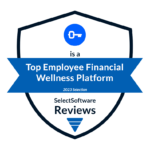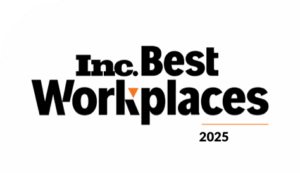The year 2019 was another in a string of good years for the American economy, with low unemployment and increasing incomes across most income brackets for the third straight year. Yet looking at the data from that year, only 29% of families were financially healthy, up from 27% in 2018. And unfortunately for most families (that don’t have assets to manage), the financial services industry works against them. In those “good” years, Americans paid over $65.4 billion in fees and $122 billion in credit card interest. That drives 23% of families to use alternative financial services like payday lenders, auto title lenders, and check cashing services where they spend another $173 billion in fees and interest. There are more payday lenders in the U.S. than McDonald’s.
Financial stress isn’t an “employee problem”
Over 150,000 Americans died last year from the lack of money, 4.5% of all deaths. The book Poverty and the Myths of Healthcare Reform illustrates how Americans’ lack of money drives up our healthcare costs by 30%. I saw this clearly in my time as the founding CEO of Accolade, a healthcare company that served employers: more than half the working families we served had financial barriers to accessing care or to complying with treatment plans. This cost will clearly get worse this year. According to SHRM, 60% of workers won’t even be able to meet basic needs if unable to work for 30 days. Doctor visits and medicines skipped now will result in more hospital days (and lost work days) tomorrow.
Employers are uniquely positioned to address employee stress
Employers are uniquely motivated because they are the ones losing 12-42 days per employee and over $1,000 per employee in health care costs to financial stress (in a good economy). Employers are the ones who suffer when their employees’ IQ falls 30-40% due to financial stress, or when poor financial health increases employee relationship issues, domestic violence, or substance abuse. Employers who value a diverse and inclusive workforce are motivated to reduce the impact of financial illness that disproportionately affects women and people of color.
Employers are uniquely positioned to address poor financial health because they provide the paycheck and they are already part of many moments that matter to family finances: the addition of a new dependent, the employee requesting a 401(k) loan, the employee going on disability or earning a bonus or starting a new job.
With clear incentives to take responsibility for employees’ financial health, what is stopping employers?
To date, it’s been the complete lack of safe and effective options. Financial wellness and coaching services don’t get enough engagement because they don’t provide meaningful solutions to the 78% of families living paycheck to paycheck (which includes 10% of those making over $100,000). Existing solutions think about financial health the wrong way: an employer health plan would never think of only offering wellness coaching to its employees with cancer or asthma—these people need healthcare by someone who can diagnose the issues and guide their choices. Similarly, access to Financial Care for employees should be standard. The damage financial illness causes is often hidden to large employers unless they measure the impact on their bottom line. Smaller employers see it every day in people who can’t get to work or ask for advances on pay or loans.
Employees also need more than just direct access to “treatments.” Point solutions like pay advances, paycheck-linked loans, student loan programs, and many others provide employers the equivalent option to enabling employees direct access to pain medications without a professional intermediary to help them consider all of their options. Point solutions are dangerous, as they are not right for everyone all of the time. The right solution for someone’s student loans is different if they have $30,000 in credit card debt.
Working families need Financial Care
They need to be able to access someone knowledgeable, someone on their side, someone who doesn’t make money off of their financial product decisions. They need people backed by rules engines that consider all their employer’s benefits and all of the government programs, community resources, and financial products available to them. And they need better financial products, linked to their paycheck, that reduce the burden of fees and interest while making it easy to make and implement good financial decisions. This definition of “care” is the equivalent of the standards employers have come to expect from health plans, and should be the standard they expect from financial health solutions as well.
That is why we, in partnership with innovative employers, have built Brightside. The 21st century has already taught us that financial health and physical health are inextricably linked. Employers that understand the value of productive, diverse talent will provide real Financial Care for their employees.
To schedule a demo and learn more about how Brightside Financial Care supports employee financial health and delivers measurable ROI for employers, start here.





